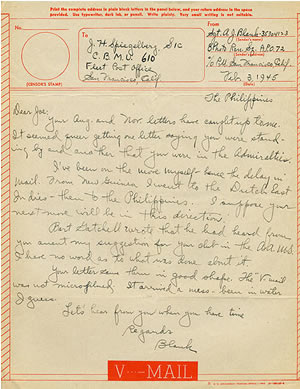Tips for Writing Letters and Articles
 Tuesday, September 11, 2007 at 09:03PM
Tuesday, September 11, 2007 at 09:03PM  I have the blessing (or burden) of reading lots of letters and emails sent to me from various people, some official, some free lance. Very few of them cut the mustard, whatever that means. (Google it for me.) What I mean is that they generally fail to persuade me to do anything. It’s like I am supposed to send them a thousand dollars because they learned how to use a word processor to write a letter and ask me for it. Period. I’m sorry, but after fifty gazillion letters like this, the little switch inside my head or heart that operates my emotions sort of slows down and stops working. It takes some kind of dynamite to get it going again.
I have the blessing (or burden) of reading lots of letters and emails sent to me from various people, some official, some free lance. Very few of them cut the mustard, whatever that means. (Google it for me.) What I mean is that they generally fail to persuade me to do anything. It’s like I am supposed to send them a thousand dollars because they learned how to use a word processor to write a letter and ask me for it. Period. I’m sorry, but after fifty gazillion letters like this, the little switch inside my head or heart that operates my emotions sort of slows down and stops working. It takes some kind of dynamite to get it going again.
I begin every letter knowing that the intended reader hates that he or she got it in the first place. The first word, phrase, sentence or paragraph that bores them is the excuse they’ve been looking for to toss it in the garbage can. (Of course, there are those types who believe that they are under a divine mandate to read every single word on a page and ponder it. They are also the types that don’t have any money to send to you anyway, so don’t get too excited.) The sooner I can get a hook in, the more confidence I have that they will read the letter.
People aren’t interested in your history, your trials and tribulations, your unsolicited advice, your personal opinions about subjects that they couldn’t care less about. They don’t want you to beat around the bush. They want you to get in, get out and get going. Just tell them. Don’t tell them what you’re going to tell them, why you’re going to tell them, how you’re going to tell them or how little you’re going to think of them if they don’t let you tell them.
The following brief points may help you to write better letters, especially to pastors, church members or people from whom you would like to get support. I hope one or two of these bits of advice will make a difference in the responses you get.
Letters
- Inspiring. Give pastors something they can use from their pulpit. Give church leaders something that will help them in witnessing or in their prayer life. Give average readers something that will make them sit up and say “Wow!”
- Worth reading . Add value to the reader. Make them think that reading your letter is not a waste of time.
- Upbeat. Give each letter an overall positive tone. Even negative subjects can be cast in a positive light.
- Consistent terminology . Don’t interchange words that have different meanings. If you appear confused, you will lose your reader for sure.
- Avoid wordiness . Don’t use ten words if five will do.
- Motivating. Write in the active voice. Use verbs. (Avoid be, is, are and was if at all possible.)
- Understanding. Demonstrate that you know the plight of the pastor, the leader, the respondent.
- Attract attention . Underline, box quotes, use color. Boredom is death!
- Say it again . Plan on three mailings to get the point across.
Articles in publications (text)
- Relevant. Your reader will ask, “What does this have to do with me?” as he or she reads the letter. Once they realize that they don’t have to read it, they will drop it quicker than a New York minute. (I am hoping that you haven’t come across that cliché, in which case you think I am a very clever man.)
- Current. Stale news is a turn-off.
- Accurate. Is it factual, specific, verifiable? With the internet, fact-checking couldn’t be easier.
- Motivating. Does it grab the heart? Anything with little or no emotional appeal fails the test. If I don’t care, I won’t read. If I care, I’ll read voraciously.
- Informative. What little known or unknown facts are presented? “Hmmm, I didn’t know that!”
- Interesting. Drab or colorful?
Articles (photos/graphics)
- Compelling. Makes you look.
- Stylistic. Trendy fonts, reflects current design concepts.
- Imaginative. Not the same-old same-old.
- Action-oriented. Unposed, exciting and moving. Post-office or yearbook poses won’t work.
To the true literary gourmet, these offerings hardly exhaust the subject. If you just want to tweak your work, however, maybe this is all the help you need. I shall look forward to getting better letters in the mail!

Reader Comments